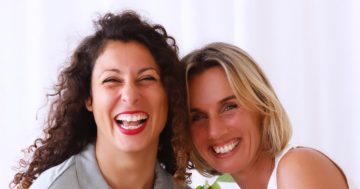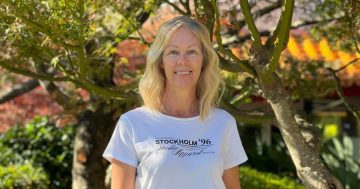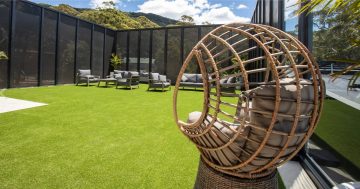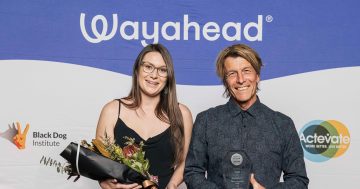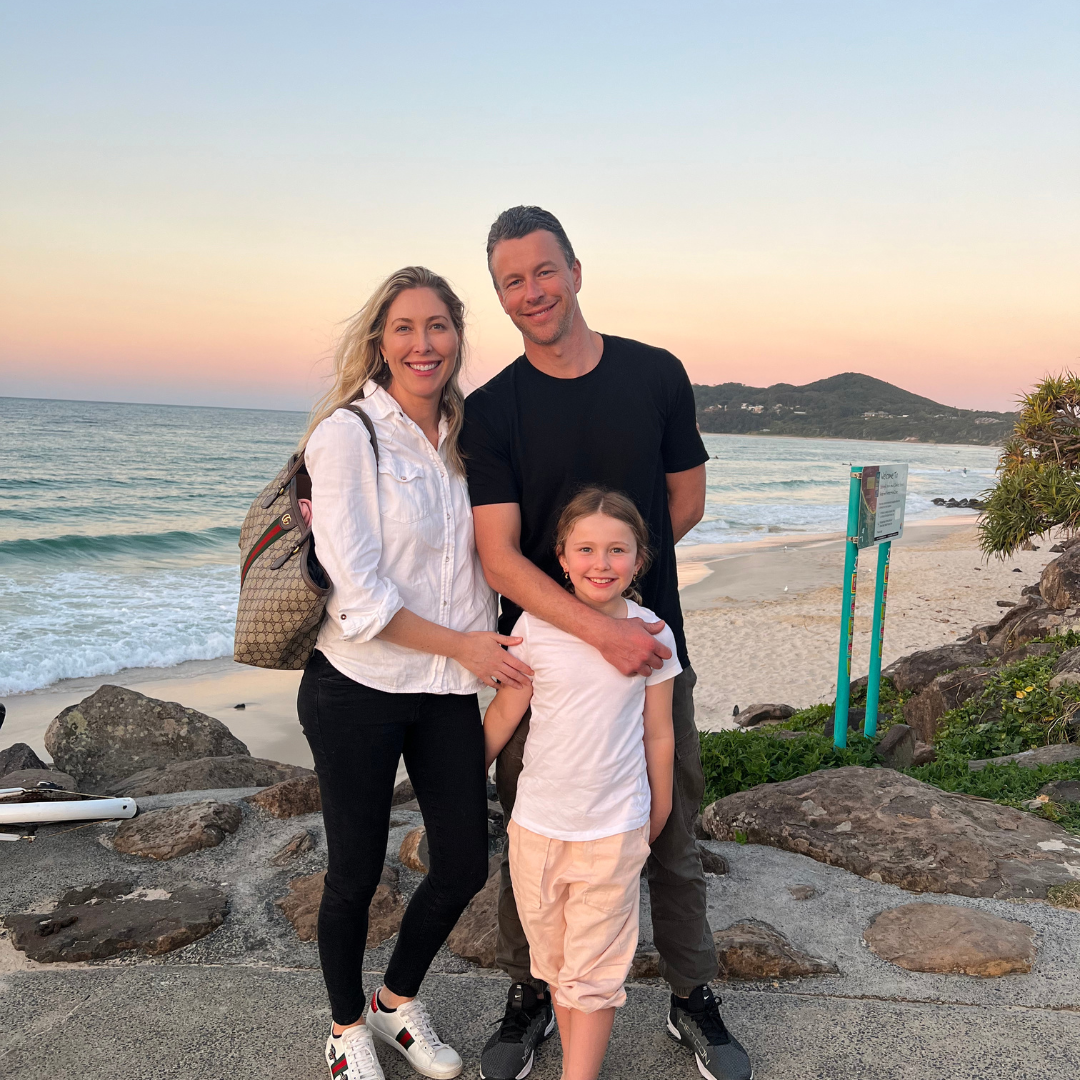
Chelsea Pottenger founded EQ Minds to help others with their mental health and wellbeing. Photos: Supplied.
WARNING: The following story contains language which may distress some readers.
A Gerringong mum has convinced high-flyers from the corporate world to prioritise their employees’ mental health and wellbeing by using her own experience with postnatal depression to create a thriving business and book to help others.
Chelsea Pottenger seemed to be the perfect picture of success.
After returning home from being a high-performance athlete in the United States, Chelsea pursued studies in commerce at the University of Wollongong and climbed the career ladder until she was at the top of her game, living the hard and fast lifestyle in Sydney.
But everything changed in 2015 when she welcomed her daughter Clara into the world and found herself struggling with severe postnatal depression.
“To be honest I didn’t know anything about postnatal depression, even though pre-pregnancy I suffered anxiety.
“I never actually even considered that would rear its head again. I just wasn’t aware or educated enough to know that could link into postnatal, so I didn’t share with my obstetrician my predisposition to anxiety.”
Chelsea started suffering from dark thoughts and insomnia just days after giving birth and, despite her incredible support system, she found herself hiding how she felt from those closest to her.
“I just kept pretending I was OK, but I just was not OK.
“And I was one of the lucky ones; I had my mum stay with us for the first six weeks; Jay, my husband, is just the most phenomenal, supportive man; my friends were around every day asking thoughtful questions, bringing me food, but for some reason I was just dying on the inside and terrified to tell anyone.”
That included medical practitioners.
“I had no idea why I did that,” she said. “I think I was worried that they would take Clara away from me if I was showing signs that I wasn’t coping.”
She was prescribed benzodiazepines to help her sleep, and while they worked at first, Chelsea found herself needing more and more just to rest.
But the breaking point came when she was set to fly to Scotland for a friend’s wedding and had a massive panic attack on the way to the airport.
On the side of the road, her anxiety turned to a deep low.
“These thoughts of being a burden, not just to Jay and Clara now and my family, but also to my friends – I couldn’t even get to Scotland to be a bridesmaid for a good friend.
“And then there was this switch where I thought the only way to get out of this whole situation is to remove myself from the planet.
“I made the decision to drive home, write a goodbye letter to Clara and Jay and was on my way to take my own life.”
When she arrived home her husband was unexpectedly there and, for the first time, Chelsea revealed to him the full depths of her pain.
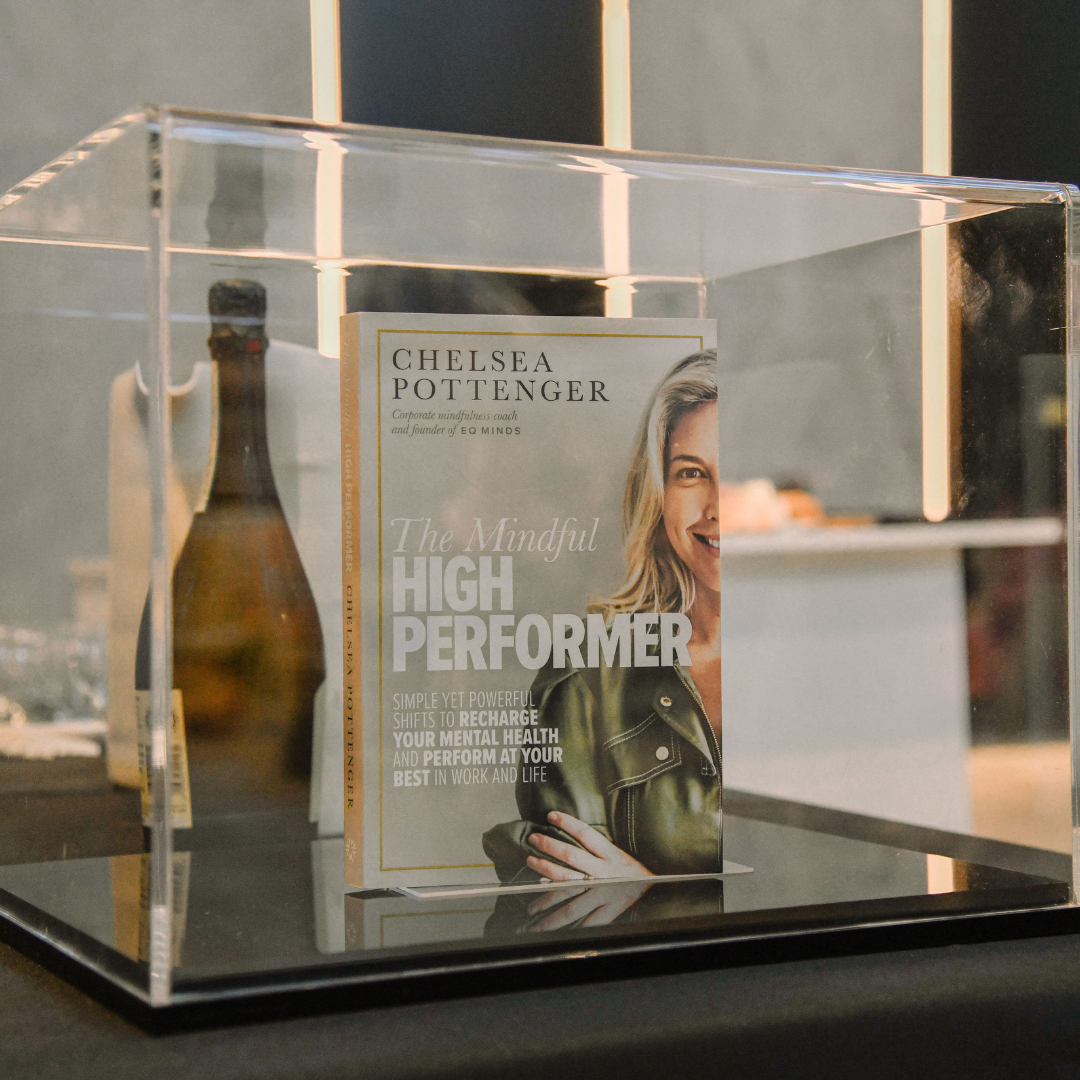
Chelsea’s book provides coping techniques to people who don’t have access to her programs or events.
Chelsea and Clara were admitted into a special psychiatric facility for mums suffering postnatal depression, where she remained for five weeks.
“It’s just so unfamiliar to be in a psychiatric hospital but you’re around these other women that are going through the exact same things as you and you really bond over this experience, like you’re all in the trenches together.”
Techniques she learned to help cope, like exercise, nutrition, meditation and mindfulness, continued to be an important part of her recovery and day-to-day life when she moved back to the Illawarra.
She started to study psychology and combined all her experience and knowledge to create EQ Minds in 2016.
“I thought if I could help one person in this world not experience what I’ve just gone through, if I could keep them out of a perinatal or postnatal psychiatric clinic, that would be everything.”
Chelsea ran free workshops within the community for months, teaching local groups like Rotary, before a friend put her in touch with a prominent organisation that was interested in focusing more on wellbeing.
“I met up with Ebay and they’re very progressive with their company culture,” she said.
“And they were really the first big brand that took a chance on what I was doing.”
Clients such as Uber and Westpac quickly jumped on board, as well as smaller businesses and regional councils.
Now there are even discussions to tap into international markets.
But in the back of Chelsea’s mind were those who couldn’t access the service.
“We thought, how about the dad that’s out in Dubbo whose child has anxiety and he doesn’t have any resources; how do we help that person? That’s where the book idea came along.”
Her book The Mindful High Performer has sold out four times since it was released in 2022, but that’s not how Chelsea measures its success.
“Last year I had someone reach out and had read my book in a postnatal clinic and said that I had completely saved their life and by knowing what I had been through, they can also get through it.
“That story means more to me than anything else; it means more than the book selling out, because that’s impact.”
Despite her triumphs, Chelsea’s journey hasn’t always been smooth sailing, with two relapses after she decided with her medical team to try to wean off medication, which she’ll now continue to need for the rest of her life.
But with a toolkit of techniques to help her stay on top of her health, Chelsea has learned to prioritise her wellbeing and urges others to do the same.
“Do more of the things that make you feel good and spend more time with the people that make you feel happy,” she said.
To find out more about the services on offer, visit the EQ Minds website.
Anyone experiencing distress can seek immediate advice and support through Lifeline (13 11 14), Kids Helpline (1800 55 1800), or the digital mental health gateway, Head to Health.
If you are concerned about suicide, living with someone considering suicide, or bereaved by suicide, the Suicide Call Back Service is available at 1300 659 467.










